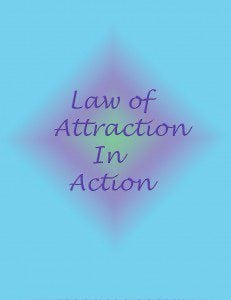 My guest today is Thomas Gagliano, author of The Problem Was Me: How to End Negative Self-Talk and Take Your Life to a New Level. About ten years ago, he started to spend less time in the business world and more time helping those who suffered like he had from addictive behaviors. He started to run groups in his house and went back to school for a masters of social work at Rutgers University.
My guest today is Thomas Gagliano, author of The Problem Was Me: How to End Negative Self-Talk and Take Your Life to a New Level. About ten years ago, he started to spend less time in the business world and more time helping those who suffered like he had from addictive behaviors. He started to run groups in his house and went back to school for a masters of social work at Rutgers University.
Healing Inner Wounds
by Thomas Gagliano
Healing is an ongoing process of self-determination and self-discipline. While the rewards are not always immediate, beautiful gifts wait if you are patient and can take direction. Not until we stop denying our own past and begin sharing our wounds, will we allow ourselves to be loved by other people.
The common problems we face are from unhealed childhood wounds that have remained buried and have haunted us. Only when we permit the window into our past to be opened, exposing the core of our adult difficulties, can we begin the healing process. We can start by thinking about the definition of intimacy we grew up with. In the dictionary, intimacy is described by closeness, love, and trust. However, if we developed a distorted definition of intimacy during childhood, where intimacy was associated with fear and pain, then we will avoid intimacy in our adult life. Also, what was the message given to us in childhood when we made mistakes? Were we given the message that mistakes were an opportunity to grow or rather were mistakes in our childhood met with such harsh consequences that we identified ourselves as a mistake? Were we allowed to fail at times as every human being does, or did we identify our whole being as a failure?
If we did receive negative messages in childhood, then negative inner voices will develop as we grow into adulthood. These inner voices keep us imprisoned by reminding us of the intrusive messages we received in childhood over and over again. Childhood wounds are reopened, isolating us from others. In many ways, we play roles in our lives that can bring harmful consequences to others and to ourselves. We wear masks to hide who we really are. The little voice makes us feel ashamed and unworthy. We become self-centered causing us to feel that we have the right to act out with addictions regardless of the harm it causes others. This is destructive entitlement.
These inner voices are so powerful that even though they imprison us to destructive roles in our lives, we listen to him. Sometimes we act in ways that do not always make sense as we hurt ourselves and others. We feel compelled to listen to the destructive inner voice in our head. Making sense of our actions is like figuring out a jigsaw puzzle. Some examples of ways that our thinking can become distorted are:
• Do you feel like you are carrying the burden of the world on your shoulders and powerless to let it go?
• Do you have problems trusting any process that you are not in control of?
• When you make a mistake, do you feel shame so strong it overwhelms you, where you identify yourself as a mistake?
• When you get angry, do you terrify the people around you, or do you suppress, ignore, or stuff anger?
• In social settings, do you feel either superior or inferior to others, rather than feeling like you belong?
• Do you give away your power to others by letting them determine how you feel about yourself?
• Do you want help, but aren’t able to take that first step and don’t know why?
There are three essential strategies to healing that will free us from the chains of our childhood wounds. These include: awareness, action, and maintenance. These essentials will help us understand how we became who we are.
First, we need to become aware of what is broken inside so we know what needs to be fixed. We need to take review those early messages, write them on paper and discuss these findings with others to understand the ways these messages affect the relationships we have in the here and now. Where, how, and who gave us the perception we have of ourselves and others?
Next, positive actions allow us to see our true responsibility in each situation and help to stop the voice inside of us from directing our behavior in negative ways. As we start to act in healthier ways, the distorted view we have of others and ourselves begins to melt away. Eventually, through positive actions, our perceptions and dynamics change, bringing more peace into our lives. The willingness to take the direction of sponsors, therapist and other healthy people in our lives will be met with all kinds of defenses. Many of us do not trust any process that we can’t control. Therefore many actions will have to be done before the person feels like doing them, as all kinds of excuses will get in the way.
Third, maintaining positive actions in an environment where there is group support will stop the destructive inner voice from coming back to take charge of our behavior again. We need the support of others to do what we can’t do for ourselves. These actions must be maintained with the aid of a support group consisting of trusting individuals where each member is there for the other when change becomes too paralyzing to do on one’s own.
In essence, if you do not have awareness, you cannot take action.
If you cannot take action, there is nothing to maintain.
***************
Check out Thomas Gagliano‘s book, The Problem Was Me: How to End Negative Self-Talk and Take Your Life to a New Level
***************
Take the self-love challenge and get my book, How Do I Love Me? Let Me Count the Ways for free at http://howdoiloveme.com. And you can post your loving acts HERE to reinforce your intention to love yourself. Read my 31 Days of Self-Love Posts HERE.
Please leave comments under my posts so we can stay connected.

